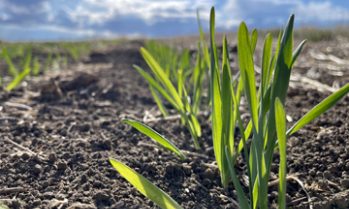Cause of Loss
Uncontrollable natural hazards covered by Crop Insurance.
Insurable Causes of Loss
SCIC covers you for losses resulting from uncontrollable natural hazards including:
- Drought
- Excessive rain
- Hail
- Flood
- Frost
- Snow
- Wind
- Lightning
- Hurricane
- Tornado
- Accidental fire
- Damage caused by wildlife
- Insects
- Gophers
- Plant disease
Losses that are controllable or could have been prevented with sound farm management practices are not covered. If an insured cause of loss cannot be identified, coverage may be reduced or denied; therefore, it is important to notify SCIC immediately when damage occurs.
Uninsured Causes of Loss
The uninsured cause of loss policy ensures that producers following industry recommended farm management practices are not at a financial disadvantage to the few who do not.
Generally, SCIC does not advise producers on what are acceptable farm management practices. For some specialty crops, there are specific terms and conditions that apply. Producers can gain more information about their business through available sources of agronomic information or industry experts.
Any “controllable” loss is considered an uninsured cause of loss. Examples include:
- Poor quality seed
- Improper seed placement or seeding date
- Uncontrolled, excessive weed populations
- Chemical damage
- Insect or disease damage where it is possible and practical to prevent or control the damage
Many different factors can reduce yields. Risk can be decreased by actively monitoring crops and taking any necessary measures including a combination of cropping choices and rotations, timely seeding, stubble and fertility management, field scouting and monitoring, and timely use of crop protection products. You are expected to implement appropriate measures if there is a clear economic advantage to doing so and assuming normal growing conditions for the rest of the crop year. Failure to do so may result in the claim being denied in full or reduced. Contact your customer service office before destroying any crop or putting it to an alternate use.
When a crop is not adequately monitored or control measures are applied too late to be effective, uninsured causes of loss may be applied.









